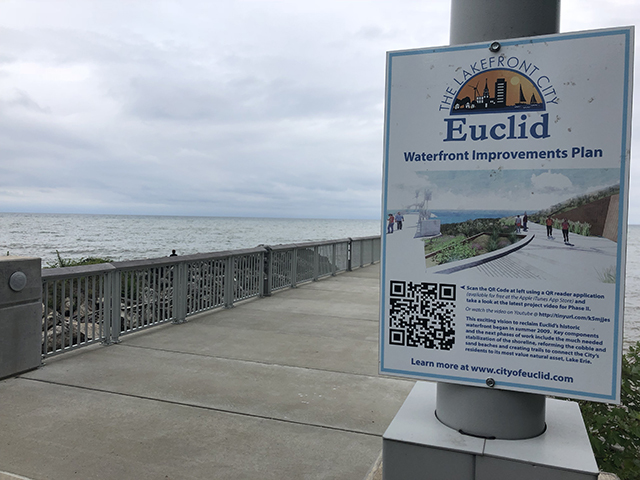Our business has been very busy over the last couple of months so I’ve been talking to a lot of new clients who are interested in buying rental properties out-of-state. When I talk with them, many of them share with me their experiences with other turnkey providers and a whole laundry list of things that have gone wrong in the past. And when they’re interviewing me and looking to buy rental properties from me they share that laundry list with me and I have been keep track of the ones that appear the most.
I have about six things that I want you guys to watch out for when you’re talking to turnkey providers and are looking to buy turnkey rental properties.
1. Low or No Inventory
Many turnkey providers are having a very hard time finding inventory. Because the market is so hot right now, it’s very hard to find any good deals, therefore if the turnkey providers can’t find deals it means they can’t give you deals as well. When they’re trying to sell deals to you they want to make sure that you’re hitting a certain percentage return, a nine or ten percent cap rate, but if they can’t find their deals to sell to you then there’s going to be no inventory for you
This is the most recent problem that a lot of investors have been coming to me and saying, “I used to use this turnkey company but they have no inventory.” Therefore, one of the first questions that I would ask a turnkey provider is how much inventory do you have on a monthly basis that I’m able to buy, and is that on a first-come, first-served basis, do you just sell them to your number one, two and three guys, or am I, as a newbie, able to get in front of some of those deals.
There’s some turnkey providers that are really big, who have some VIP buyers lists, and if they have low or no inventory, and especially low inventory, they’re just going to go to the top three guys and you’re never going to get a deal. So you want to go and talk to a turnkey provider who is actually going to share with you some deals. Before you spend your time interviewing them and learning more about them you want to make sure that it’s even possible for you to get in front of some deals and you’re not just there stuck on the back burner.
2. Large Deposits Upfront
Many turnkey providers want you to be in line waiting for them to feed you deals. They want you to be in the back of the queue and they want to make sure that you’re interested and that you stay interested, and one way that they do that is by asking for a large deposit upfront. What many of them will do is say, “We know you’re interested in buying rental properties in Salt Lake City, and we provide that, and we do a couple of deals a month. In order for you to get any properties or have any properties shown to you, you need to give us $2,000 earnest money to show that you’re interested.”
I’ve heard many investors in the past do this, give the company two, three, four thousand dollars as earnest money. The money’s not gone, it’s in a third-party account, but that money is stuck there for three, four, five months. Because there’s low or no inventory, so these turnkey providers, while they’re asking you for a deposit, now they don’t have any inventory, and now your money is stuck in this limbo, and you don’t want your money to be stuck in a limbo and have to beg to get it back out.
I wouldn’t recommend working with any companies that are asking for these large deposits upfront. I would just ask to see some deals without that, tell them that you are serious, show them your proof of funds, show them that you have a pre-approval letter, show them that you’re serious in other ways, but there’s no reason for you to put two or five thousand just to see a deal, it doesn’t make any sense.
3. Buying Properties without Tenants in Place
A lot of the big turnkey providers have been selling their rentals without tenants in place. They’ll actually sell you a property that they just finished the rehab and they’ll say, “The rental rate is $700 to $800” but that’s a big range and your bottom-line return is going to change a whole lot whether it rents out for $700 or $800.
Something different that we do is that we actually sell our properties with a tenant in place so that you as a buyer know exactly how much money you’re going to make every single month. A lot of the other guys are not doing that. They’re selling them for these rental ranges, and a lot of the times what happens is that these properties will sit on the market for a month or two months, and that’s one or two months that you’ve just lost rent. If you want to buy these properties, don’t close on the properties until you have a tenant in place and until that property is making money. You’re supposed to be a passive investor, you want to buy the cash flow, and why would you buy an asset that’s not even producing cash flow yet. I would hold off closing until you do get a tenant in place.
Another issue with buying a rental property without a tenant in place is that that first month rent typically goes to the property management company. So if the property is on the market for one or two months for rent, and then the first month is the fee for the property management company, and that’s three, four months that you still haven’t made money on your investment property. You want to make money from day one, you want to get in the groove of collecting rents and making sure that your property is a valid investment. That’s three or four or five months that you’re just going to be sitting on the sidelines scared to buy another one. So buy a property with a tenant in place, have the turnkey provider pay for that first month’s fee to rent out the property so that you can start collecting rents right away.
This is what happens, the turnkey provider is going to sell you a property that’s vacant, and they’re going to sell it to you vacant because they want to get that first month’s rent for renting out the property. So it all goes back to finding a turnkey provider that doesn’t own the property management company and buy a property that already has a tenant in place, that’s already making money.
Another reason you don’t want your turnkey provider to own the property management company is that they’re going to make recurring revenue from you now, and there are typically a lot of markups on the property management side. You want the turnkey provider to be vested in your success, and the success should be on the purchase. The continued success should be you and the turnkey providers goal. But when the turnkey provider owns the property management company and you have a bad experience with the property management company, then you’re alone, the turnkey provider is not going to refer you to a different property management company.
Typically when you buy properties from these turnkey providers who own the property management company, you have to use that property management company. So what if you have a bad experience with that property management company and you want to use somebody else because they’re up charging you and they’re not able to rent out the property, you want to go and look for another property management company, you have to go and do that homework yourself because nobody’s on your side.
That’s why we always use third-party property management companies so that whenever the issue arises where somebody’s not happy with the property management company for whatever reason, we can step in and we can talk to the property management company and explain what’s going on and why our clients aren’t happy. And then if they are really not happy and they want to find another property management company, we’re there to help them find another property management company if that’s what the issue is. You’re stuck by yourself if you try to use one of these turnkey providers who own the property management company.
4. Required to Use Their Bank & Sell Back to Them
These are two things that you should never sign up for. There are so many different banks out there and many of these turnkey providers who require you to use their banks are doing that for a reason. The reason is that they have a certain appraiser at that bank, or that bank gives them certain referral fees, or compensates them in some way, whether that means increasing the sales price or kicking them back some money for referring clients over. I would find a turnkey provider that doesn’t require you to use their bank. Typically you can find other banks that you’ve used in the past, who can give you a little bit better of a rate.
When you sign the contract with the turnkey company, make sure to see that you’re able to resell the property as you wish and you don’t have to resell it back to the property management company or the turnkey provider. I know it sounds crazy if you’ve never heard that before, but there are some turnkey providers out there who are requiring their clients, when and if they ever want to sell, that they need to sell the properties back to them.
As soon as you close and you own that property, you should be able to do whatever the hell you want to. You should be able to change property management companies, you should be able to evict the tenants, just like it was your own property. You should be able to use whatever bank you want, you should be able to use whatever insurance company you want. Don’t use turnkey providers or property management companies which are forcing you to use certain people. Definitely look at those options but you can also ask them for other recommendations, and they should be able to provide you that information, and they should really be on your team as the turnkey passive investor who wants to make some good cash flow for the next 30, 50, 60 years.
5. Huge Property Management Companies
There are a few turnkey providers out there who own the property management company and the property management company manages 3,000 or 5,000 doors. A lot of my current clients have been actually coming from these property management companies. I’d stay away from them because you do get lost in the shuffle, and you become an excel on a spreadsheet.
There’s no more relationship between you and the property management company or you and the property management company and the tenants. Because they have so much on their plate, the company is all spread out, they have a huge office space for all those property managers, and you just get lost in the shuffle.Especially if you’re just getting into turnkey rentals or rental properties in general, I would definitely stay away from these super large property management companies. With the smaller management companies I’ve seen a little bit more hands-on. They will be a little bit more hands-on with you as the property owner and a little bit more hands-on with the tenants. They’ll treat the tenants in the right way. They’ll be very descriptive in their emails between you and the tenants and keep you posted as to what’s going on. You can also pick up the phone and call the property management company. The property manager will actually walk the property and ask them what’s going on, how does it look, etc.
The larger property management companies with 3,000 or 5,000 properties that they manage, that just doesn’t become possible because there’s so many different property managers, and you’ve got to talk to Bill, to talk to Serena, to talk to Kevin, in order to get the information that you want. So you’re playing telephone with these large property management companies to get the info that you want.
6. Buying Over Appraised Value
This is the most important point. When you’re buying turnkey properties out-of-state, you want to make sure you’re paying market value or less. If you’re buying the property for less than market value, that’s terrific, that’s some built-in equity that you get. Most of the time that does not happen, but you just want to make sure that you’re not overpaying for these rental properties.
Let’s say you have a property under contract for a $100,000, and you’re using a bank. The bank sends out an appraiser to that property, and the bank is on your team, so they want to make sure that you’re buying a property at fair market value so that they can give you a loan. The loan will be for 80% of the total value of that property, and you’ll put down 20%. So they’re on your team to make sure that the property is worth that amount of money before they let you spend that and before they loan against that.
Let’s say the appraisal comes back at $80,000 and the turnkey provider comes to you and says, okay, you’re going to get the loan on the $80,000 but we want you to come up with the rest of the equity on top of that. So not only will you have to put 20% down on the $80,000 purchase, you also have to come up with an extra $20,000 to make up the difference between $80,000 and $100,000.
Trust me, this happens a lot, especially for the large turnkey providers. I’m not sure what they say to get people to do so, but a lot of my clients have come from these companies who have done business that way. Please don’t do that. It means you’re overpaying for these rental properties and typically by a large amount of money. And a lot of the times the amount of money now that you have in those properties is so much that your cash on cash return actually sinks a whole lot.
You may never be able to get that that money out, because if you buy an $80,000 property for $100,000, let’s say a family member gets sick and you need to liquidate, now you can only sell that property for $80,000, your $20,000 just disappeared.
You’ve got to think worst case scenario. You don’t want to overpay for these properties and be stuck holding the bag. Have the turnkey provider come up with a difference or drop the price for you. What they should be doing is dropping the price for you, or they should be complaining about the appraisal being so low and being wrong and they should show you why it’s wrong. We get bad appraisals all the time. I’ve had homes that I’m trying to sell for $70,000 that come back out $40,000, when I have $55,000 in the deal, and I share with my client that I sold this house around the corner for $70,000, here is one I sold for $72,000, this appraisal doesn’t make sense. I show them my numbers on the deal, this is how much I have in the deal, there’s no way that the property is worth $45,000. I have even more money in the property than that.
Your turnkey provider that you’re using should be able to show that information. If not, you’ve got to go and talk to somebody else. So never overpay for your rental properties. Buy your properties for fair market value, get good cash flow from them, make your money on the buy, and you just want to put that 20% down on your loan and that should be it. You’re going to have some closing costs of course, but put that 20% down, you shouldn’t be overpaying for these properties. Buy them at fair market value, with tenants in place that are cash flowing from day one, and you’ll be good to make cash flow for many years to come.








